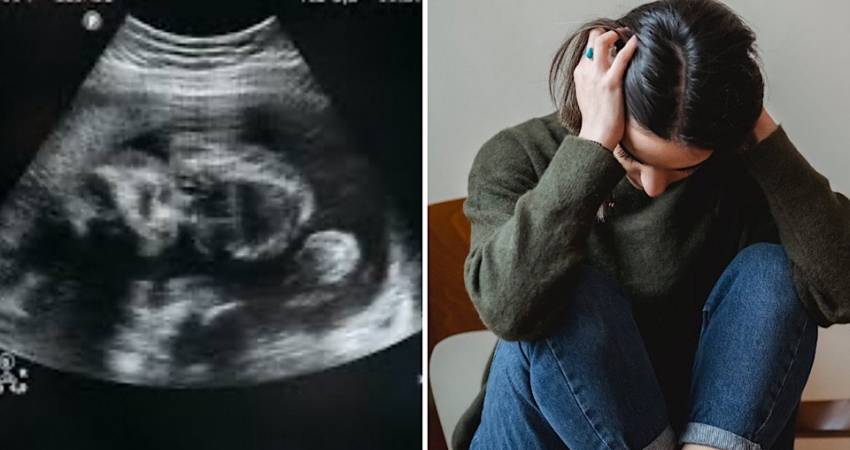
‘Aborting our future’: 10,000 abortions in 2023, new figures suggest
New figures released to Independent TD Carol Nolan have suggested that there were up to 10,000 abortions in Ireland last year, an almost 23 per cent increase on the number performed in 2022.
Carol Nolan TD told Gript that the numbers of abortions to the end of November suggested Ireland was “within breathing distance of the horrendous rubicon of 10,000 abortions in 2023,” an almost 23% leap again from 2022, a year which had also seen a dramatic increase compared to 2021, when 4,577 abortions took place.
The figures, seen by this publication, also reveal that 405 doctors were reimbursed for a first and second abortion consultation from 1st January 2019 to 30th November 2023.
Commenting on the increase, Deputy Carol Nolan said Ireland is now facing an “epidemic,” adding that there is an “under-promotion” of alternatives.
“This is now an epidemic of loss,” she said.
“Thousands of women are being betrayed by the over-promotion of abortion as the only possible response to pregnancy in certain circumstances and the cruel under promotion of life affirming alternatives. I will continue to shine a light on this issue so that women and families are fully supported with the kind of wrap around service provision that will meaningfully assist them in choosing a different path beyond that of abortion.”
The number of yearly abortions has seen an increase since the repeal of Ireland’s eighth amendment. While 6,666 abortions took place in 2019, the first year post-repeal, that number rose to 8,156 in 2022 – sparking fears from pro-life campaigners that the rate would continue to go up.
Megan Ní Scanláin of the Life Institute said today that it was “utterly appalling that the abortion numbers could have spiralled to 10,000 in one year since its introduction in 2019.”
“This is more than three times the number of Irish women who travelled to England for abortions in 2018, the last year that abortion was unlawful in Ireland,” she said. “Clearly women are being made to feel abortion is their only option, but the truth is that this country is now aborting it’s future, and it’s a tragedy for women, for those 10,000 babies who have been killed, and for our country as we drift further and further from the truly caring, life-affirming society we should be trying to build.”
The Life Institute spokeswoman said that the number of abortions had now spiralled to the point where the government needed to deal with the matter as an emergency.
“We’re calling on the government to treat this matter as an emergency and set up a special task force to look at the shockingly high number of abortions and what can be done to tackle that and offer real options to women,” she told Gript.
Despite an upward surge in the number of abortions being performed, Health Minister Stephen Donnelly has described it “totally and utterly unacceptable” that all of Ireland’s 19 maternity hospitals were not providing abortions, as he pledged to ensure all would be performing abortions come 2024.
While 11 out of 19 Irish maternity hospitals were carrying out abortions last April, that number has shot up to 17, according to Tánaiste Micheál Martin.
In December, Mr Martin said he was “very open” to recommendations that have been made to change Ireland’s abortion law, which included expanding time limits and widening grounds for abortion.
However, the Fianna Fáil leader admitted that he had an “overriding concern” that certain arguments and criteria were proposed to the Irish public when they voted on the referendum on the Eighth Amendment.
“My overriding concern is that the referendum that the people passed, and there was a set of criteria, conditions put before the people, both the referendum itself and the legislation, including the review,” he said before Christmas, adding:
“We can’t dismiss the fact that we put certain arguments before the people at a given time, not so long ago, and people voted on the basis of those arguments.”
Maria Maynes
This article was first published on Gript and is published here with permission
Featured
- Abortion coercion has arrived in Ireland – the NWC are silent
- Review of at-home abortions 'needed after coercion case'
- French Govt to remind 29-year-olds of biological clock
- Huge factor in decline in primary school numbers ignored
- Germany Denies Promoting Abortion Abroad—While Funding Pro-Abortion NGOs
- Govt don’t oppose Coppinger abortion bill at 1st stage
- March for Life: Vance, the White House, and a Divided Pro-Life Movement
- Paris’ Annual March for Life Puts Euthanasia in the Spotlight
- Britain’s seemingly limitless abortion rate
- The importance of the work carried out by Every Life Counts
- Puerto Rico officially recognizes unborn children as ‘natural persons’
- Assisted suicide laws stalled by “complex” legal issues
- Yes, that hideous celebration of 300 abortions is real
- White Crosses Memorial: Dungarvan once again pays its respects to our aborted babies
- Josiah: Abortion Survivor
- Rally for Life 2025
You can make a difference.
DONATE TODAY